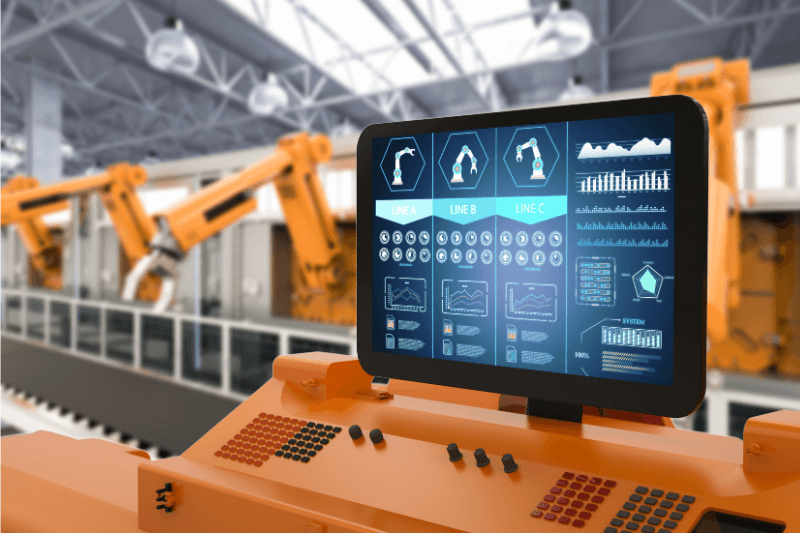In today’s rapidly evolving business landscape, automation has emerged as a game-changer, revolutionising the way companies operate and enabling them to stay ahead in a fiercely competitive environment. As a basic definition, when you automate a process, it means you are using technology and software to execute tasks without human intervention, enhancing efficiency, accuracy, and productivity across various operations.
At its core, automation involves streamlining and optimising workflows by replacing manual, repetitive tasks with technology-driven processes. This can encompass a wide range of functions, from data entry and customer interactions to manufacturing and logistics. By harnessing automation tools, businesses can unlock new levels of efficiency, reduce human errors, and allocate their workforce to more strategic and creative projects.
Advancing Business Through Automation
According to a survey and report from McKinsey, since COVID, automation projects have increased in businesses globally, with the most commonly deployed technologies being business-process-management platforms and robotic process automation. Larger companies who took part in the survey who are meeting their automation targets, showed three common factors: they make automation a strategic priority, they focus on people as much as technology, and they develop an operating model that enables scaling.
The implementation of automation offers a multitude of benefits that propel businesses towards growth and success:
Enhanced Efficiency: Automation significantly accelerates task execution, minimising the time and effort required for routine activities. This newfound efficiency translates into faster project completion, quicker response times to customer inquiries, and improved overall operational speed.
Improved Accuracy: Human errors are inevitable, but automation minimises the risks associated with manual data entry and repetitive tasks. By reducing errors, businesses can maintain the quality of their products and services, enhancing customer satisfaction and loyalty.
Resource Optimisation: Automated processes allow for optimal resource allocation. Companies can manage their workforce more effectively by reassigning employees to higher-value tasks that require critical thinking, creativity, and strategic decision-making.
Data-Driven Insights: Automation tools can collect and analyse large volumes of data in real-time. This enables businesses to gain valuable insights into customer behavior, market trends, and operational performance, facilitating more informed decision-making.
Scalability: As businesses grow, so do their operational demands. Automation provides the scalability needed to handle increased workloads without compromising efficiency or quality.
The Consequences of Ignoring Automation
Stagnation: Businesses that rely solely on manual processes are likely to fall behind their competitors who leverage automation to optimize their operations. Stagnation can lead to decreased market share and a loss of competitive edge.
Inefficiency: Without automated processes, businesses risk being bogged down by time-consuming and error-prone manual tasks. This can hinder growth potential, impede innovation, and lead to operational bottlenecks.
Missed Opportunities: Automation opens doors to new opportunities by freeing up resources and enabling employees to focus on strategic initiatives. Companies that don’t seize these opportunities might miss out on innovation and expansion.
Reduced Customer Satisfaction: In an era of rapid response and instant gratification, customers expect efficient service. Manual processes can lead to delays and mistakes, ultimately affecting customer satisfaction and loyalty.
Higher Costs: Manual processes often require more personnel and time, leading to increased labor costs. Automate processes and this can provide cost savings through streamlined workflows and reduced error-related expenses.
In conclusion, automation is a driving force that propels businesses toward greater efficiency, accuracy, and innovation. By embracing it, companies can position themselves as leaders in their industries, while those that resist change risk falling behind and missing out on the numerous benefits that technology-driven processes offer. As the business landscape continues to evolve, the choice to adopt automation becomes not only a matter of advancement but also a necessity for sustainable growth.
If you’re looking to automate your rebate process, speak to our team to arrange a demo of e-bate, our intelligent rebate management platform.

